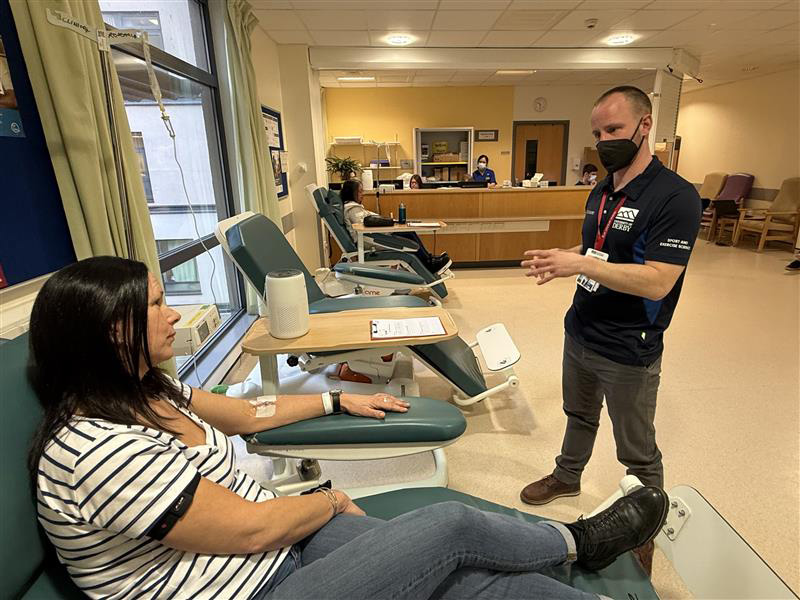Education Policy Institute’s report ‘Recovering from the Covid-19 Pandemic’

The Education Policy Institute has today (Thursday 11th May) released a report: Recovering from the Covid-19 Pandemic. This report focuses on the educational performance of various student groups during our ongoing recovery from the pandemic.
This analysis is the first in a series of reports that will be produced by the Education Policy Institute,
working in partnership with Renaissance, over the coming year. The purpose of this research
programme is to ensure that policymakers and schools have access to robust data on the
performance of different pupil groups, so that support is targeted effectively to those who need it
most as we continue to recover from the pandemic.
Education Policy Institute’s initial analysis findings:
- Outcomes in reading appear to have recovered for most year groups. This is consistent with national curriculum assessments at the end of key stage 2 in the spring of 2022.
- Outcomes in primary mathematics have not recovered to pre-pandemic levels. This is consistent with national curriculum assessments at the end of key stage 2 in the spring of 2022, where there were falls in the proportion of pupils achieving the expected in mathematics. The lower outcomes are equivalent to a loss of between 1.3 and 1.4 months of learning.
- Prior to the pandemic, the gap in outcomes in reading between primary schools with high and low levels of disadvantage was equivalent to around 11.7 months of learning.3 This grew over the course of the pandemic to 13.0 months but has narrowed slightly so that the gap between such schools is equivalent to just under 12.3 months of learning.
- This means that the gap in outcomes between primary schools with high and low levels of disadvantage was around 6 per cent wider by the end of the 2022/23 autumn term compared with the start of the pandemic.
Read the full report here.
Sector Response
Responding to the Education Policy Institute’s report on the impact of the pandemic on children’s numeracy skills, David Hughes, Association of Colleges chief executive said:
“Covid-19 had an enormous impact on educational progress for all children and young people in varying ways. My worry is that those who were 12 or 13 when the pandemic hit will be starting college this September, so this report is a timely reminder of the far-reaching effects of the crisis.
“Previous research shows progress by the end of key stage two is a good predictor of outcomes at 16. This report shows primary school children have missed out, and we know it is the same for those in key stages three and four. Many will start their post-16 education underprepared and there are simply not the resources available in 16 to 18 educational settings to fully support students to catch up.
“Colleges teach over 90% of those young people who fail to achieve grade 4 or above GCSEs in English and maths. This is almost the final opportunity for these 200,000 plus young people to achieve vital skills, but progress is hampered by poor funding. Pupil premium support ends for young people when they reach 16, but we all know that disadvantage does not end when they leave school for college. Those from the most disadvantaged backgrounds have been impacted even more so by the pandemic and unless swift action and investment is focused on addressing the skills gaps for this cohort in particular the Government’s ambition to boost maths skills across the board will fail and leave another generation without the numeracy abilities they need to get on in life.”
Responding to the report from the Education Policy Institute which shows maths outcomes for primary-aged pupils remain below pre-pandemic levels, Julie McCulloch, Director of Policy at the Association of School and College Leaders, said:
“The pandemic had a huge impact on learning and, although schools have been doing everything they can to mitigate this learning loss, these findings further highlight how lacking the government’s education recovery programme has been in offering the level of support required for pupils to catch up on what they have missed.
“The fact of the matter is that the government has failed to invest enough money into education recovery, and one of its key recovery strategies – the National Tutoring Programme – is deeply flawed because it requires schools to top-up government allocations with funding that they do not have. This is compounded by the fact that school budgets are under extraordinary pressure as a result of years of underfunding. The level of primary school per pupil funding is so low that some small schools are barely sustainable.
“With maths outcomes for primary school pupils still below pre-pandemic levels, and a major shortage of teachers threatening maths standards in secondary schools, it is remarkable that the Prime Minister has chosen to focus his attention on a misguided plan to extend the teaching of maths for all pupils to 18.
“His priority should be to fix the problems that currently exist by ensuring that schools have the funding and teachers they need.”
Teach First CEO Russell Hobby said:
“This report is yet more evidence that the pandemic continues to hit disadvantaged pupils hardest. While progress in reading post-covid is encouraging, the gap between poorer pupils and their peers when it comes to maths has only got worse.
“Teachers have the power to change this, but as we face into acute teacher shortages, we’re calling for additional pay premiums to attract staff to work in disadvantaged communities where they’re needed most.
“If the government is serious about economic growth, then investment in teachers and young people must be at centre of their plans.”











Responses